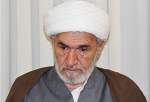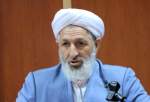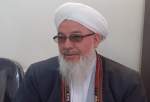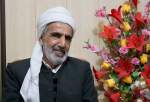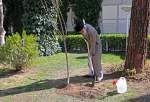Syrian President Bashar al Assad says his country can overcome the US-imposed sanctions and create more opportunities for investment across the country.
19 Mar 2025
- UN chief slams fresh Israeli massacre in Gaza
- Ansarullah leader warns Israeli attack on other countries if Palestinian cause liquidated
- Over 400 civilian death toll in renewed Israeli massacre across Gaza Strip
- Only 10% of Gaza's residents have access to safe drinking water
- UNICEF: Palestinian children remain deprived of the most essential supplies and services
- American nurse converts to Islam after Gaza visit
- Houthi leader warns of escalation, expands naval blockade to US
- EU foreign policy chief welcomes Arab plan for Gaza reconstruction
- Yemen's Houthis announce attacking US carrier in Red Sea for 2nd time in 24 hours
- Imam Reza shrine dome washed ahead of Persian New Year (photo)





